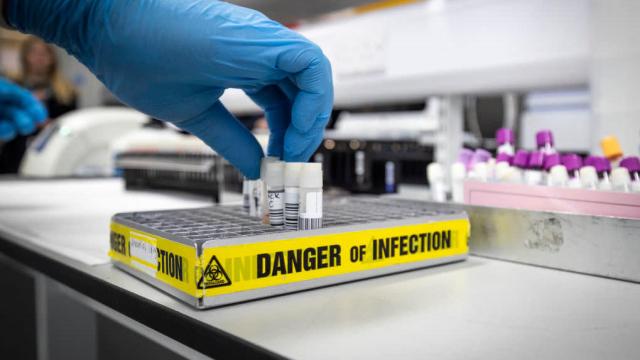The pace of research into covid-19 has been unprecedented, with dozens of studies and new trials arriving by the day. Here are the latest scientific developments that could be especially important moving forward.
Remdesivir continues to show promise
To start, there’s some potentially good news on the treatment front.
There’s growing if still very preliminary evidence that the experimental antiviral drug remdesivir can be effective against covid-19 and the coronavirus that causes it. On Thursday, STAT News reported that researchers at the University of Chicago have seen early, encouraging results from ongoing Phase III clinical trials of the drug on severely sick covid-19 patients.
University of Chicago researchers are studying 125 patients as part of their contribution to the trials, which are being funded by the maker of remdesivir, Gilead Sciences. According to a presentation from one of the university’s study authors, obtained by STAT, many of those given the drug so far have recovered quickly, with only two deaths.
Meanwhile, a paper released last week in the New England Journal of Medicine reported that a slight majority of severe covid-19 patients (36 out of 53 patients) given remdesivir on a compassionate-use basis recovered after the treatment.
These results, promising as they are, are far from definitive proof of remdesivir’s effectiveness. There are other arms of the trials being run at other hospitals and universities, and the full data is not out yet. Neither the NEJM-published study nor the Gilead trial at the University of Chicago include a placebo-controlled group for comparison—a key aspect of high-quality scientific evidence. Other trials involving remdesivir do plan to have a control group, though, and more large-scale data for this drug and other potential treatments should be on the way soon.
Co-infections may be more common than we thought
Many people sickened with covid-19 may also be dealing with other infections, new research published this week in JAMA suggests.
Researchers at the Stanford University School of Medicine tested throat swab samples taken from patients in the state for the new coronavirus (called SARS-CoV-2) as well as for common cold and flu viruses. Of the 116 samples that tested positive for SARS-CoV-2, 20 per cent also tested positive for another virus. These co-infections most often involved cold bugs, such as rhinoviruses, enteroviruses, and seasonal coronaviruses.
The findings, while small and isolated to one area of the country, are concerning, because earlier research from China had suggested that co-infections were very rare. One reason that’s important is because doctors in the U.S. have been advised to test patients for other respiratory viruses as a way to rule out covid-19, given the lack of accessible testing for the coronavirus. But the presence of another virus “may not provide reassurance that a patient does not also have SARS-CoV-2,” the authors wrote. Further research will have to continue tracking how commonly co-infections are happening and whether they pose any other challenges, such as increasing the risk of severe symptoms.
A better way to test new therapies
Some scientists think they’ve found a way to more safely and accurately test potential therapies for covid-19.
In a study published today in Science, researchers from the Netherlands and Germany reported that cynomolgus macaques can be exposed to the coronavirus and develop a mild infection. Similar to people, older macaques had longer infections and more symptoms than younger ones, though symptoms were mild across the board. They also seemed capable of spreading the infection to other monkeys even if they weren’t sick, much as people are able to spread the virus asymptomatically.
The findings could mean that scientists can use these primates as a more precise staging ground for testing out future covid-19 vaccines and treatments. Some ethicists and scientists have raised concerns about the lack of preclinical testing for many of the potential therapies that are already being tried out on people. While mice and other rodents have shown promise as animal models for covid-19, using animals that are more similar to humans should make it easier for researchers to catch any potential risks of an experimental drug before it reaches human trials.
